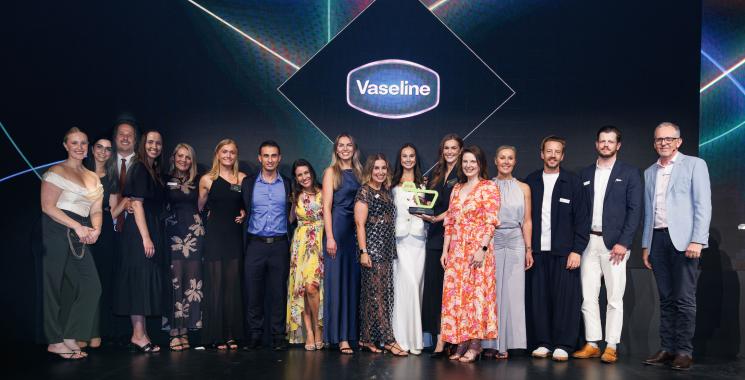
Half of retail workers expect a focus on e-commerce post COVID-19
Photo by S O C I A L . C U T on Unsplash
Most Australians expect their workplace will change for the better after COVID-19
Australians rate their employers response to the pandemic and outline what lasting changes they want to see in new Qualtrics research
SYDNEY, AUSTRALIA, 19 August 2020 — More than half of Australian workers (55%) expect their industry will change for the better after COVID-19 due to the changes being implemented in response to the pandemic, according to new research released today from Qualtrics.
This is one of the key findings from Qualtrics’ Work Different study, which draws upon insights from more than 1,000 Australians to provide a comprehensive scorecard into how people rate their employer’s response over the last 6 months, what work routines employees want once the pandemic eases, and what shifts in workplace policies they expect of their employers.
The majority of respondents in the study (58%) rated the way their employer responded to the pandemic as “above average”.
With more than 4million Australians currently working from home, a third (34%) of respondents said their employee experience has improved during the pandemic, while half said it has remained the same. The most effective actions employers have taken to make their teams feel more valued throughout this period have been more workplace flexibility (37%), gratitude from direct managers (21%), executives (18%), and customers (17%).
“As a result of their employers’ quick thinking and actions, the majority of workers across Australia currently feel a lot more valued (47%) at their company, and a lot more proud (54%) to work for them. This is in part down to the human centred approach many adopted when the pandemic hit using solutions like the free Qualtrics Remote + On-site work pulse, which has supported 55,000 projects globally,” said Steve Bennetts, Head of Employee Experience for Qualtrics in APJ.
“While many have made steps in the right direction, businesses cannot afford to take their foot off the gas. Employees want to be listened to, and there is more change on the road ahead as people return and industries adapt. To ensure they continue to successfully move forward businesses need to formalise the human-centred approach adopted with employees,” added Bennetts.
How to work different
As businesses continue to plan and manage their return to the workplace, the Qualtrics study gives insight into what measures they want to see, and what actions they expect their employer to take.
For 74% of Australians, it’s important their employer asks them what action they want to see taken to make them feel confident about returning. The top actions workers want to see are more flexible work schedules (51%), higher focus on personal hygiene (47%) and office hygiene (42%), greater focus on employee mental health (42%), and being able to choose their work location (27%).
These employee preferences closely align with the top actions they expect their employer will prioritise - higher focus on personal hygiene (58%) and office hygiene (49%), more flexible work schedules (48%), greater focus on employee mental health (32%), and improved digital communications (25%).
“While employees can agree prioritising safety and hygiene is essential moving forward, there is a slight gap between the actions they want to see, and which they expect to see outside of this. Australians want to see their employers continue to focus on offering more workplace flexibility - such as less time spent commuting, and wearing more comfortable clothing to work - but they expect their employer to focus on digital transformation and finding ways to do more with less.
“While there is so much talk of when things will go back to normal or how we’ll come to terms with the “new normal,” those conversations are fundamentally missing the point, and missing an important opportunity to come back better, stronger, and more inclusive than ever. We’ve witnessed how changing the way you listen to and engage employees can have a positive effect, which is why those who make lasting changes now will have a key advantage in the future - from attracting and retaining talent through to improved loyalty and productivity,” added Bennetts.
The importance of feedback
The study reveals more than three quarters (78%) of workers think it’s very important their employers listen to their feedback during a crisis. However, only half of workers in Australia say their employer has listened and acted on feedback more during the pandemic.
“With situations continuing to change very quickly, being able to listen to and deliver what your employees want is a key advantage in ensuring they feel safe and supported. Longer-term, employee expectations have been changed forever by the pandemic, requiring a shift in the way businesses have traditionally managed engagement. It’s now business critical that businesses have real-time insights into the things that matter most, and the skills and leadership to act on them effectively,” said Bennetts.
Industry specific findings
Retail: Half (51%) of retail workers expect to see an additional focus on e-commerce and home delivery after the pandemic, with the majority (59%) expecting an increased focus on website functionality and usability.
Technology: The majority (76%) of workers agree the industry has reacted well to changes from the pandemic with more than half (58%) feeling more productive than before.
Key changes workers expect to see as a result of the pandemic include:
- 76% expect increased remote work
- 73% expect an increased focus on new uses of technology
- 62% expect an increased focus on innovation
Automotive: More than half (57%) of workers say that their organisation has reacted well to the uncertainties posed by COVID-19 with almost half (47%) saying they’ve been more productive.
While the industry has reacted well, staff expect fundamental changes including:
- 60% expect to see a shift to touchless vehicle delivery to the end consumer
- 56% agree there will be more online retail car sales
- 29% agree there will be a shift to remote/concierge service models
Financial services: 56% of financial services workers agree their industry has reacted well to shifts in the industry, however they expect significant changes to the industry including:
- 78% expect to see increased remote working
- 75% expect to see a shift towards online and digital services
- 74% agree there will be an increased focus on new uses of technology
- 63% expect increased innovation to benefit customers
Travel and hospitality industries: Industry changes are expected to primarily focus on personal and protective hygiene measures over technology-led transformation changes. These changes include:
- 84% expect to see an increased emphasis on cleanliness
- 67% expect public spaces will be designed to make social distancing easier
- 64% expect greater investments in contactless interactions
About the study
The study was conducted on Qualtrics CoreXM™, an industry-leading platform where organisations can manage and take action on experience data (X-data)—the thoughts, emotions, and intents of stakeholders.
Qualtrics captured insights from 7,505 respondents across North America, Europe, and Asia Pacific in July 2020. Industry insights were gathered for automotive, education, financial services, government, healthcare, retail, high tech, and travel and hospitality.











